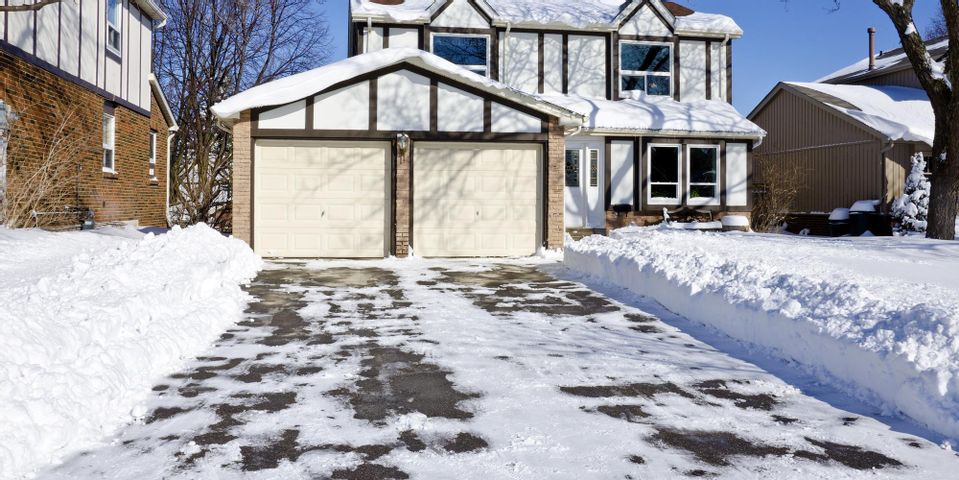
Winter is nearly here, and for a large part of the country, this means preparing for snow and ice on roads and driveways. Salt is commonly used to deice asphalt paving and make it safe to drive on. However, before having the blacktop around your home salted, it’s important to know how the mineral can affect the pavement and surrounding areas.
How Salt Impacts Asphalt
When asphalt is properly prepared for winter, rock salt won’t actually cause any harm to the paving. The problem arises when driveways and roads aren’t repaired beforehand. This can cause water to seep into any cracks and freeze and thaw repeatedly throughout the season. When salt is applied to these areas, it decreases the freezing temperature of water, so the process is sped up, resulting in larger cracks or even potholes.
How to Minimize Salt-Related Damage
 Before the temperature starts dropping below freezing, call an asphalt paving contractor to repair fissures and patch holes in your driveway, parking lot, or other structure. Also, if it has been at least three years since the pavement was sealed, have them perform this service as well.
Before the temperature starts dropping below freezing, call an asphalt paving contractor to repair fissures and patch holes in your driveway, parking lot, or other structure. Also, if it has been at least three years since the pavement was sealed, have them perform this service as well.
Sealcoating will prevent water penetration and any resulting cracks it would cause at the end of the season, which could drastically shorten the structure’s life span. Finally, after it snows, act quickly to remove it. This reduces the amount of water that can melt and freeze over the asphalt and help to limit how much salt is needed.
If your driveway could use some repairs before winter strikes, contact the professionals at Musson Brothers in Rhinelander, WI. For over 70 years, they’ve provided quality concrete and asphalt paving, site development, and excavating services. They are committed to maintaining an open and honest environment between employees and clients. For more information, visit their website and call them today at (715) 365-8700.
About the Business
Have a question? Ask the experts!
Send your question

